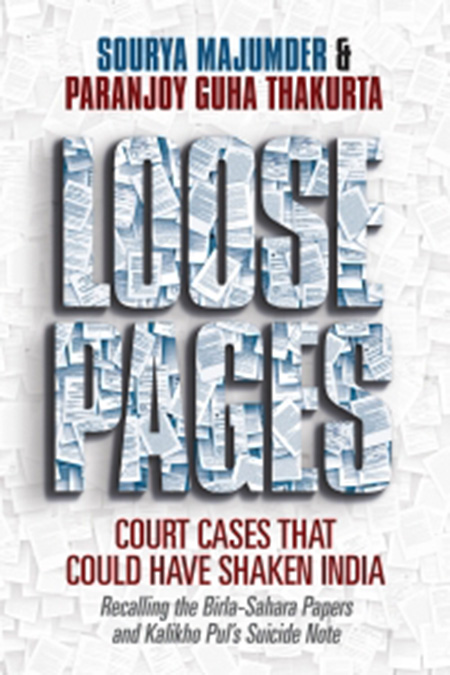A recent judgment by a division bench of the Delhi high court could have far-reaching implications for the country's financial sector. The court has sought to plug the tax avoidance loophole in the infamous Mauritius route used for portfolio as well as direct foreign investments bound for India.
If this judgment stands as it is at present and is not challenged and stalled by the country's Supreme Court - which might well not be the case in the near future - the status of Mauritius as a tax haven may be seriously impaired.
The legal dispute started soon after the Central Board of Direct Taxes in the Union ministry of finance issued a circular on April 13, 2000.
The circular placed an embargo on income tax officers conducting detailed investigations on the activities of Mauritius-based foreign institutional investors if such investors produced a certificate from the Mauritius government about their residential status in that idyllic island in the middle of the Indian Ocean.
This circular, which raised a big hue and cry at the time it was issued, was subsequently challenged in court through two public interest litigation (petitions filed by a former income tax commissioner S K Jha and a non-government organisation called Azadi Bachao Andolan (literally, "agitation to save freedom".)
The PIL petitions claimed that FIIs had to paid taxes at a nominal rate in Mauritius and enjoyed tax exemption on their capital gains made in India. It was further alleged by counsel Prashant Bhushan that the CBDT had issued the April 2000 circular only after the income tax authorities decided to issue show-cause notices to more than 30 firms that had allegedly evaded payment of taxes to the tune of more than Rs 3,000 crore (Rs 30 billion) during the 1999-2000 financial year alone.
What has surprised quite a few are the sharp comments that have been made against the government by the court's division bench comprising Chief Justice S B Sinha and Justice A K Sikri.
"If the (income tax) assessing authorities intend to open any proceedings (against particular FIIs) they would be entitled to take recourse to such proceedings as are open to them under the law," the judgment stated, adding that the quasi-judicial assessing powers of income tax officers "cannot be taken away by such a circular".
The CBDT's powers were "limited" and "it must act within the law", the judges said, while quashing the circular.
"Mere production of a certificate by a company that it was registered in Mauritius is not sufficient proof for claiming the (tax) benefit under DTAT (the double taxation avoidance treaty between India and Mauritius)," the court said and went on to remark that the central government owed an explanation to the people as to how the country "has been losing millions of rupees by allowing the opaque system to operate".
Mere production of a certificate from Mauritius could not be accepted as "conclusive proof", the court observed, stating that there was no provision in the DTAT between the two countries to accept the "conclusiveness of the certificate by Mauritius" as proof of the residential status of a company or a person in that country.
The judges did not stop there. After imposing a litigation cost of Rs 10,000 on the Union government, the bench rejected the contention that the India-Mauritius treaty was beyond the scope of judicial review because of political and economic considerations.
The courts have the powers to "lift the veil in tax matters if (a) transaction is sham or illusory", the judges pointed out and said that income tax officers have the necessary powers to verify the genuineness or validity of a document while investigating cases of tax evasion.
It was in August 1982 that the governments of India and Mauritius signed a DTAT that was apparently aimed at boosting the economies of both countries (though the economy of Mauritius is 100 times smaller than the Indian economy).
India has similar treaties with over 50 countries, including at least 16 treaties that are almost identical with the Mauritius DTAT.
Still, as a tax haven, Mauritius is the most popular destination for Indians as well as those doing business with India for at least two important reasons. First, Mauritius is relatively close to India.
Secondly, the government of Mauritius is controlled by persons of Indian origin.
The India-Mauritius DTAT has been -- and continues to be -- misused as a means to launder illegal money. It is believed that a substantial chunk of the slush money owned by India's corrupt politicians and businesspersons has been safely stashed away in Mauritius.
A recent report by the Securities and Exchange Board of India has pointed out how the Mauritius route has been systematically misused by brokers and FIIs.
However, inquiries made by the Indian market regulator to the Mauritius Overseas Business Activities Authority for information about the nefarious activities of firms registered in that country have invariably drawn a blank.
Promoters of Indian companies have reportedly used the Mauritius route to illegally ramp up share prices of their own companies.
FIIs operating in India have been required to pay short-term capital gains tax at rates varying between 20 per cent and 30 per cent in recent years.
The tax rates come down to 10 per cent if the capital gains are retained within the country for more than one year. However, most FIIs opt not to pay any capital gains tax at all by routing their funds through sub-accounts in Mauritius, since the government of that country does not levy any capital gains tax.
This is the main reason why, during the decade of the 1990s, investment flows from Mauritius exceeded Rs 14,000 crore (Rs 140 billion), a good 50 per cent higher than the inflows from the world's largest economy, namely, the United States.
There are no firm estimates but it has been calculated that if FIIs had not used the Mauritius route for their investments, the Indian tax authorities may have gained an amount between Rs 5,000 crore (Rs 50 billion) and Rs 10,000 crore (Rs 100 billion).
If India truly wants to help the economy of Mauritius (and not just its politicians, lawyers and accountants), it would probably make better economic sense for this country to provide a grant to the people of Mauritius.
It is alleged that the India-Mauritius DTAT has deliberately left ambiguous the definition of a company's resident status. The treaty states that a company is considered to be "based in Mauritius" if its "effective management" is located in the island nation.
Late in March 2000, a group of income tax officials had slapped notices on a clutch of Mauritius-based FIIs asking them to pay tax arrears since 1997. Soon thereafter, hell broke loose.
Share indices collapsed and Union Finance Minister Yashwant Sinha reportedly urged the CBDT to issue the April 13, 2000, circular "clarifying" the government's position that a certificate of residence issued by the Mauritius government would be "adequate evidence" that a company's effective management was in Mauritius.
The government claimed the circular reiterated a point made in a earlier circular of March 1994 wherein it had been stated that any resident of Mauritius deriving income from alienation of shares of Indian companies would be liable to pay capital gains tax only in Mauritius and would not have any such tax liability in India.
This is the very same circular that has now been quashed by the Delhi high court.
In this context, it is worth noting what an individual who is close to the Rashtriya Swayamsevak Sangh, the ideological parent of the ruling Bharatiya Janata Party, had to say about the role of the finance minister on this issue.
In an article published in the Indian Express newspaper (August 1, 2001), management expert Bharat Jhunjhunwala had lamented: "Any bureaucrat or minister can subvert governance to favour his near and dear ones and yet claim that he is clean…the income tax department had issued notices to Mauritius-based FIIs seeking to deny them benefits of the Double Taxation Avoidance Treaty with that country because their head offices were located in USA or other countries.
"The Finance Minister intervened and instructed that a certificate of registration issued by the government of Mauritius was adequate and final proof of the FII's domicile and asked the income tax department to withdraw their notices. The Finance Minister's 'bahu' (daughter-in-law) was one beneficiary of the minister's intervention. Yet, this was considered clean because the Finance Minister had disclosed his interest to the Prime Minister. Whether the decision was taken in the interests of the country or the 'bahu' can never be answered…"
Jhunjhunwala's vitriolic article did not merit a rejoinder. It is well-known that Finance Minister Yashwant Sinha's foreign-educated daughter-in-law Punita works for a leading international finance company. It is also common knowledge that a firm associated with this company is among the many FIIs that are legally investing in Indian stock exchanges.
What is, however, uncommon is the vicious manner in which the Finance Minister was attacked, that too, by a person who had been praised sky-high by the head of the RSS, K S Sudarshan, who had gone to the extent of publicly suggesting that people like Jhunjhunwala should be advising the government on economic policy issues rather than "rootless wonders".
Since this article was published, the finance minister and other government dignitaries have met and feted various ministers of the government of Mauritius who have had occasion to descend on Delhi.
Besides Sebi, various wings of the ministry of finance - such as the Directorate of Revenue Intelligence, the Economic Intelligence Bureau and the Enforcement Directorate - have, for many years now, been fully aware of the blatant manner in which the provisions of the India-Mauritius DTAT have been flouted with impunity. But the authorities have chosen to turn a blind eye.
The question is whether the Dehi high court judgment will change the situation on the ground. There is a strong possibility that the judgment would be challenged in the Supreme Court and if a stay order comes from the country's apex court on the operation of the high court judgment, the Mauritius route would continue to be misused to launder illegal money.
Much is indeed at stake, not just cordial relations with a friendly country.


